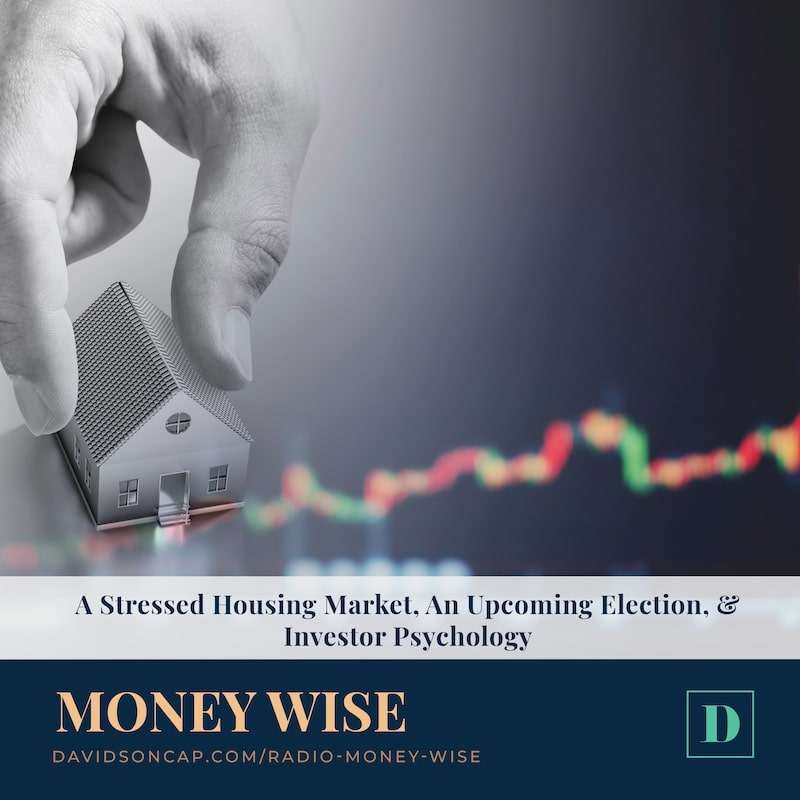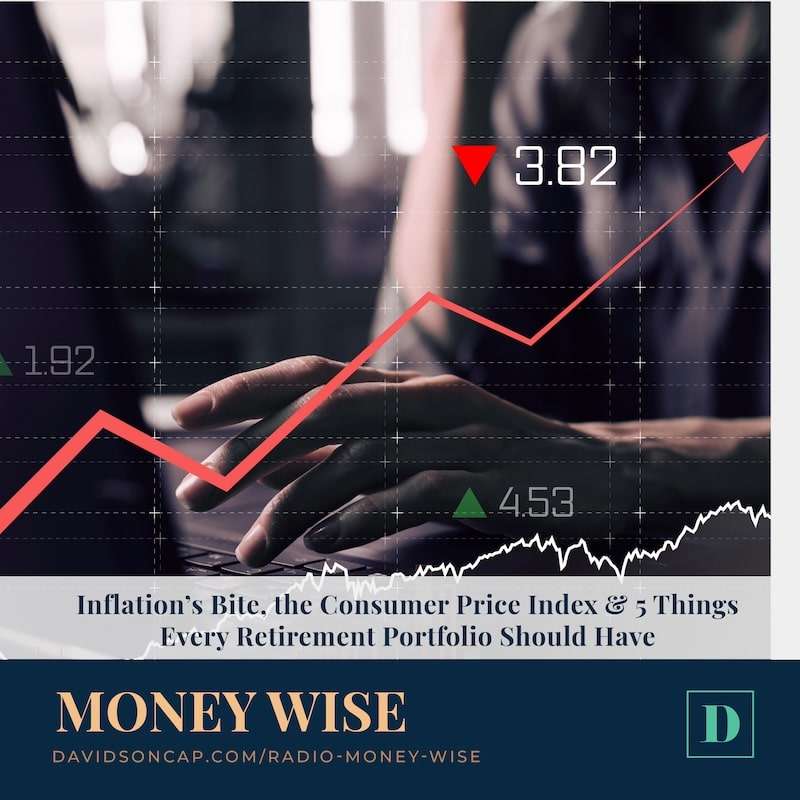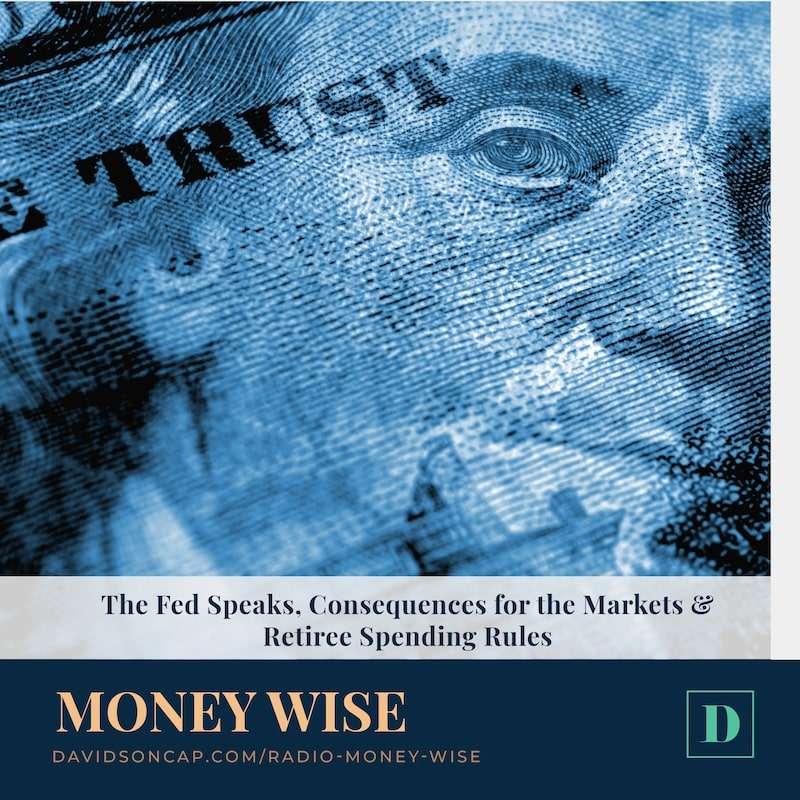Investor Education and Strategy for a Down Market
A bear market occurs when a market experiences prolonged price declines, typically when securities prices fall 20% or more from recent highs. We find ourselves in the midst of a bear market now – and it’s a big, hairy, smelly bear! Of course, ups and downs in the stock market aren’t unusual, but they can still cause investors pains. Whether this is your first bear market as an investor or you’ve been invested in a down market previously, there are a few things you should know. The more education you have, the better you’ll be able to make rational decisions and keep your emotions out of your portfolio.
Why it’s called a bear market and why we’re in one today.
Since a bear market refers to a stock market that’s retreating, it’s called a bear market because bears hibernate. The alternative, a surging stock market, is referred to as a bull market because bulls charge.
There are a few different factors that go into creating a bear market, but interest rate adjustments to fight monetary inflation is one of the biggest motivating factors in the current bear market. The prolonged recovery of supply chains from the Covid pandemic lockdowns, mis-guided policies coming from Washington, and the war in Ukraine has led to rising costs for commodities and a wide variety of consumer goods, which has in turn put upward pressure on inflation. Coupled with anxieties over China’s zero Covid policy, which is the second largest economy in the world, economic stress is at a high.
While it can be hard to predict how long market trends will maintain, it’s important that you don’t let volatility keep you from seeing the bigger picture of your investment strategy and your financial goals. Working with a Registered Investment Advisor (RIA) you trust can help you make the best choices for you, rather than letting fear or anxiety drive your investment decisions. (For your RIA San Antonio needs, you can contact us here.)
What investors are worried about most.
In a bear market, the biggest concern for investors is interest rates, which are currently skyrocketing as a result of the high inflation that we’re experiencing. If you think of low-interest rates as fuel that boosts investments and consumer spending, Wall Street is currently going through a withdrawal causing declines in the market.
Previously, the Federal Reserve would focus on propping up financial markets with low-interest rates and pumping liquidity into the market through quantitative easing (QE). However, they’ve changed direction and are instead focusing their efforts on fighting inflation. Recently, the Federal Reserve raised interest rates by three-quarters of a point and although this might not sound like much, it’s the sharpest rate hike since 1994. It’s expected that in the next few months, we’ll see more increases in interest rates as they work to fight inflation. By design, these moves are meant to slow down the economy by making it more expensive to borrow and spend money, but the risk is that we could enter a recession if the rates are raised too quickly or too high.
SEE ALSO: 6 Money Moves to Make in a Down Market
How a recession plays into a bear market.
Simply avoiding a recession isn’t quite enough to get the markets out of their current slump. Even if the Federal Reserve can pull off an economic “soft landing” without causing a recession, high-interest rates will continue to put downward pressure on stocks. Historically, there have been 26 bear markets since 1929, but only 15 recessions during that time. That’s not to say that avoiding a recession wouldn’t help the fallout. When a bear market coincides with a recession, stocks have declined approximately 38% on average, compared with a roughly 24% drop when the economy can avoid a recession.
So, why doesn’t avoiding a recession stop a bear market? Customers typically don’t buy as much if they’re paying more to borrow money, meaning less revenue is flowing to a company’s bottom line and stocks track profitability and sales over time. Additionally, higher rates make bonds a more attractive investment alternative because they pay a higher interest rate while not being as historically volatile as stocks.
Selling stocks during a bear market.
At Davidson Capital Management, we recommend maintaining a long-term investment time horizon. But with that said, it doesn’t mean being complacent in your portfolio. A proper asset allocation combined with superior security selection that is actively managed provides the greatest level of downside protection to an investment portfolio. During bear markets the key to building and maintaining long-term wealth is limiting your losses by keeping your investment hole shallower, so when the market begins to recover your portfolio recovers in a much shorter period of time. During every stock market cycle, there will be periods of time when investors can be on the offensive by allocating a higher percentage of their portfolio to stocks, but when the market turns from a short-term correction into a bear market this is when investors must become more defensive and reduce their asset allocation to stocks. A reduction in stocks doesn’t mean a total liquidation but depending on your risk capacity it could mean a stock allocation between 25%-30%. If you currently work with an advisor and their advice has simply been to stay the course without making a single asset allocation adjustment to your stock allocation I would ask the question, why?
When looking back on past bear markets, many of Wall Street’s best days happened either during a bear market or directly afterward. In the middle of the 2007-2009 bear market, the S&P 500 jumped up 11%. Shortly after the month-long 2020 bear market, fueled by the COVID-19 pandemic, the S&P 500 saw a 9% surge. Overall, the S&P 500 has bounced back from every one of its bear markets to eventually rise to a new all-time high. In fact, half of the S&P 500 Index’s strongest days in the past 20 years occurred during a bear market. The best way to weather a bear market is to stay invested in stocks based on your risk capacity and focus on the long-term.
How long we can expect the bear market to last and how deep it can go?
It’s hard to predict the future of the markets; that’s always been the biggest challenge with investing. We can look to history to gain some insight as to what we can expect. History shows that the faster an index enters a bear market, the shallower they tend to be.
Traditionally, it has taken stocks 251 days to fall into a bear market, but when the S&P 500 has fallen 20% at a faster rate than those 251 days, the index averaged a loss of 28%. The longest bear market on record lasted 61 months, ending in 1942. During that time, it cut the index by 60%.
The average length of a bear market is 289 days or 9.6 months. This is a significantly shorter time period than the average length of a bull market, which is 991 days or 2.7 years.
SEE ALSO: Cultivating Your Investor Mindset for Stock Market Success
How to know when a bear market has ended.
In general, investors consider a bear market to be over when they see a 20% rise from a technical support level, coupled with sustained gains over a six-month period. But once the end of the bear market is front page news significant gains have already been made. Therefore, we don’t recommend an all-out strategy when it comes to investing in stocks.
Concluding thoughts on bear markets.
Though bear markets can seem scary, it’s important to remember that they’re normal – and short-lived. Since 1928, there have been 26 bear markets, but there have been 27 bull markets, and even with the volatility, stocks have risen significantly over the long-term and rewarded long-term investors. When looking at the past performance of the markets, stocks have been on the rise for 78% of the time. Though past performance isn’t always indicative of future results, those are pretty good odds!
At Davidson Capital Management, our team is committed to actively managing and tactically balancing our clients’ investment portfolios. If you’re worried about the bear market and feel as if you could benefit from a portfolio review and analysis with one of our investment advisors, please contact us today.
We have financial advisors in San Antonio & Corpus Christi ready for you to schedule a call.




